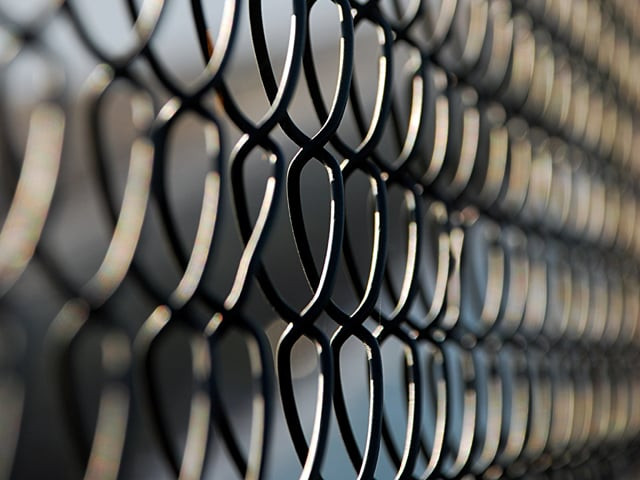Behind bars: IG prisons defends transfer
‘The decision to scatter 25 prisoners has been politicised’.

Behind bars: IG prisons defends transfer
The decision to break up 25 prisoners and move them from Karachi’s jail to different ones across Sindh has been politicised. However, IG Prisons Ghulam Qadir Thebo insists that they are being transferred for administrative reasons.
Even terrorist Omar Saeed Sheikh was transferred after it was discovered that he had placed hoax telephone calls to President Asif Ali Zardari and Army chief Ashfaq Parvez Kayani while incarcerated in Hyderabad jail in November 2006, explained Thebo.
Out of this group 19 men are from one political party, a point that coloured the reaction to the decision. “The issue was politicised needlessly,” said Thebo, “when in fact there was a problem of grouping between inmates and the measure was taken to improve the jail administration.”
Among the prisoners who were shifted to jails in Hyderabad, Sukkur and Shikarpur from Karachi are Arshad Pappu of the Lyari gang wars and the notorious Saulat Mirza, who was charged with the 1997 murder of Karachi Electric Supply Company MD Shahid Hamid.
The transfers may take time as the prison staff needs to arrange for transport.
Despite what Thebo says, a man who held his post once — former Sindh IG prisons Brigadier (retd) Nisar Maher — argues that the transfers of political prisoners are no joke and such decisions are almost always political. You are required by law to keep prisoners in their own districts for two reasons. “First, so that under-trial prisoners are able to attend their proceedings,” he explained. “[And second], if the prisoner is a convicted felon and has no court hearings to attend, then he too should be able to meet his friends and family.” If a Karachi prisoner is moved to, say Shikarpur, it can effectively cut him off from family visits.
Criminologist Dr Fateh Muhammad Burfat adds that the transfer of prisoners should be done in high-profile cases. “All over the world dangerous criminals are kept in isolated cells, but here they enjoy it,” he said. He alleged that privileged prisoners in Sindh’s jails, who may or not have political affiliations, not only have cell phones, but have also been allowed laptops, TVs and DVD players.
“They even have a ready stash of drugs and alcohol,” he said. Pornography watching is common.
According to Burfat, no one is denying that prisoners too have rights. “But the fact of the matter is that prisoners in Sindh’s cities run mafias from behind bars.”
Published in The Express Tribune, July 22nd, 2011.



















COMMENTS
Comments are moderated and generally will be posted if they are on-topic and not abusive.
For more information, please see our Comments FAQ